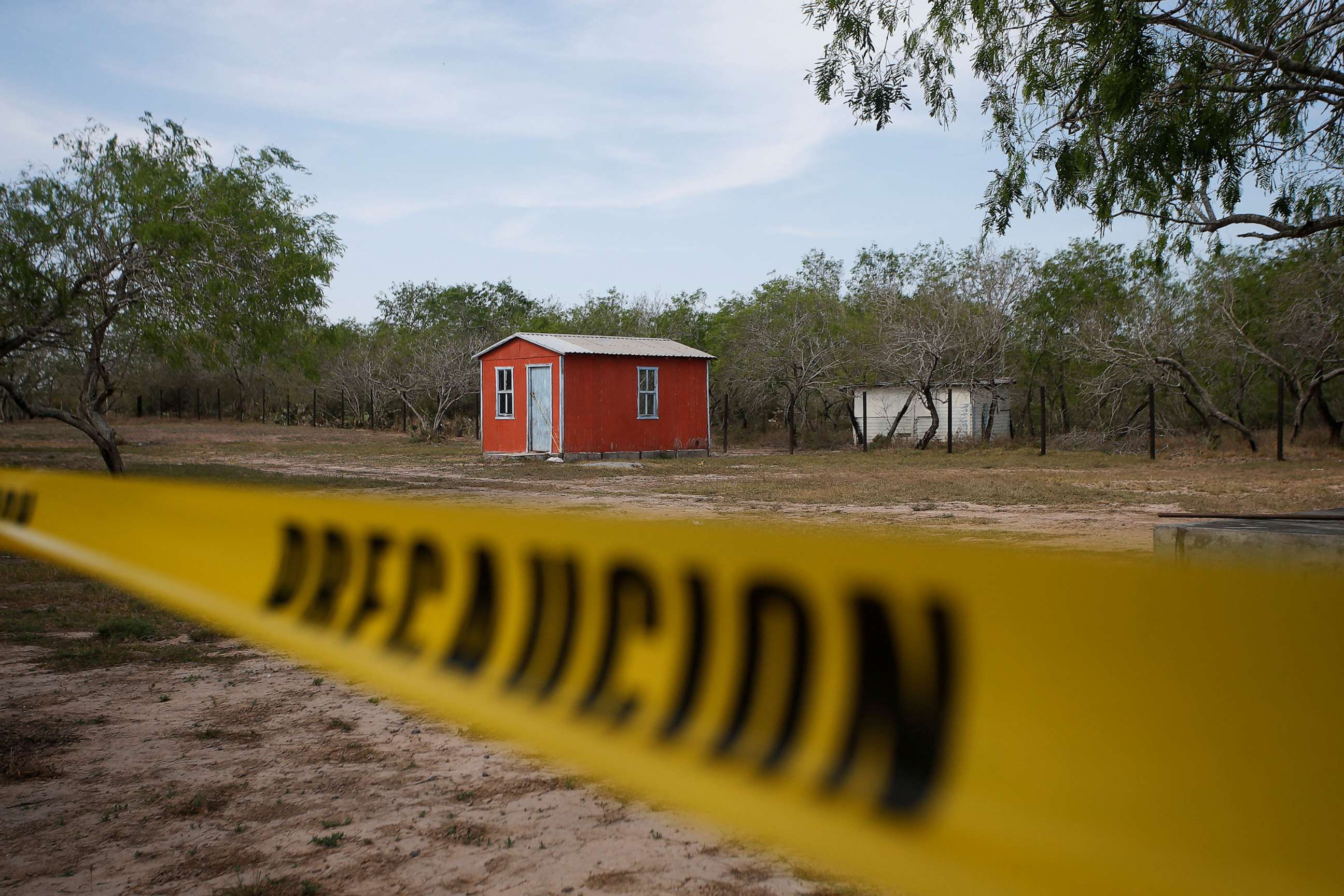Gun used in kidnapping, killing of Americans in Mexico came from US
Mexico estimates over 500,000 guns are trafficked from the U.S. every year.
A gun used earlier this month by cartel members to kidnap a group of Americans and kill two of them was illegally trafficked from the U.S., according to a criminal complaint filed in federal court.
It's a stark reminder of how the violence that often makes the news in Mexico is in large part fueled by the U.S.—by the steady flow of guns and the strong demand for illicit drugs.
Roberto Lugardo Moreno appeared in court Monday to face charges for conspiring to illegally export a firearm—days after admitting to federal agents that he purchased guns in the U.S. and knowingly provided them to members of the Gulf Cartel in Mexico.
In particular, one AR-style pistol that was bought in October 2019 and allegedly provided to a Gulf Cartel member was "recovered by Mexican authorities and linked to an incident involving the murders and kidnappings of U.S. citizens which occurred on March 3, 2023 in Matamoros, Tamaulipas, Mexico," according to the complaint.
Moreno told federal agents he got paid just $100 "during the period that he purchased firearms for individuals that he knew were going to provide them to a Gulf Cartel figure in Mexico," per the complaint.

His case is just a drop in the bucket. The Mexican government estimated that every year, between 500,000 and 873,000 guns are trafficked from the U.S. across the southern border into Mexico, it said in a $10 billion lawsuit against top U.S. gun manufacturers first filed in August 2021.
That may seem like an astronomical figure, but the U.S. government has shockingly high figures, too. A February 2021 federal watchdog report said approximately 200,000 guns are trafficked from the U.S. each year, calling it the government's "best estimate available."
In that lawsuit, the Mexican government argued that gun companies' "carelessness and negligence" and their marketing and distribution practices "actively" facilitate gun trafficking into Mexico, but they ultimately lost the case last October. The federal judge wrote they had "considerable sympathy for the people of Mexico," but ruled that manufacturers are shielded under U.S. law "when [their] product functioned as designed and intended," according to Reuters.
"NSSF is pleased the court dismissed Mexico's misguided and baseless lawsuit against members of the firearm industry that sought to blame them for Mexico's unwillingness and inability to bring Mexican drug cartels to justice in Mexican courtrooms," NSSF, the firearms industry trade association, said in a statement after the court dismissed the lawsuit. "Like the court, we sympathize with the plight of the Mexican people and the criminal violence involving illegal firearms they have endured. However, the crime that is devastating the people of Mexico is not the fault of members of the firearm industry."
But last week, Mexico's Foreign Ministry announced it would appeal that decision—arguing that immunity law "has no effect on damages caused in Mexican territory."
"With all these actions the Mexican Government is seeking to involve the actors that until now have not been involved in the fight against arms trafficking: The gun companies," the Foreign Ministry added—accusing them of "negligent practices" that help fuel "violence in Mexico, as well as other crimes such as human trafficking and drug trafficking, particularly of fentanyl."

A second lawsuit filed in October against five Arizona gun stores argues that they "routinely and systematically engage in the illicit trafficking of weapons, including of military-style weapons, for criminal organizations in Mexico through sales to straw purchasers and sales meant for arms smugglers," the Mexican government alleged. That case is still working its way through the judicial system.




